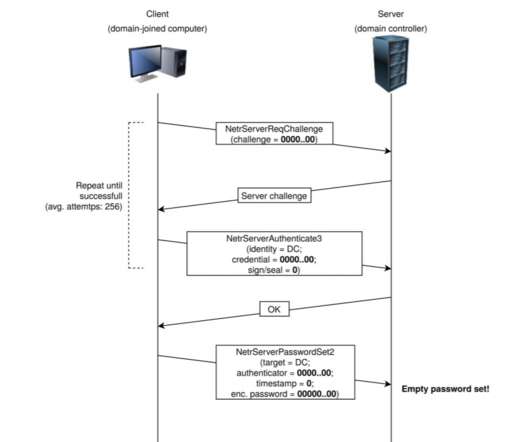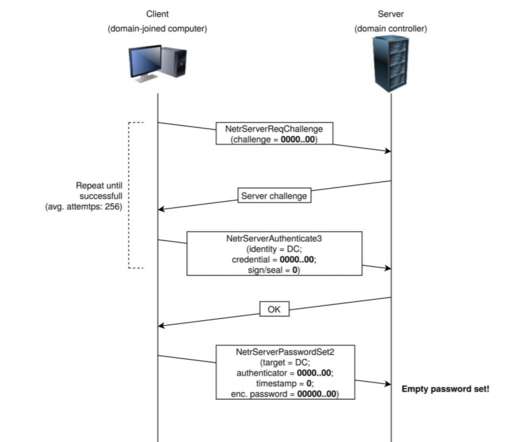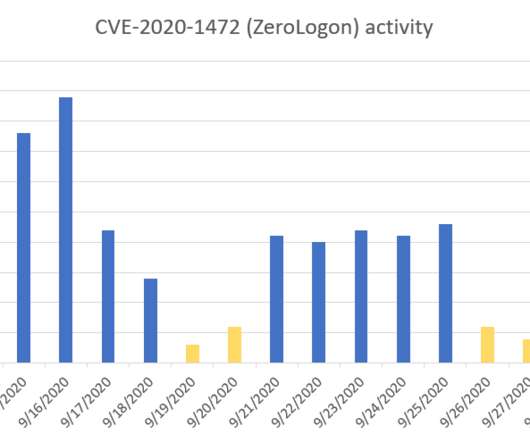Hackers are using Zerologon exploits in attacks in the wild
Security Affairs
SEPTEMBER 24, 2020
— Microsoft Security Intelligence (@MsftSecIntel) September 24, 2020. We strongly recommend customers to immediately apply security updates for CVE-2020-1472. We strongly recommend customers to immediately apply security updates for CVE-2020-1472. Don’t waste time, patch your system now! Pierluigi Paganini.












Let's personalize your content